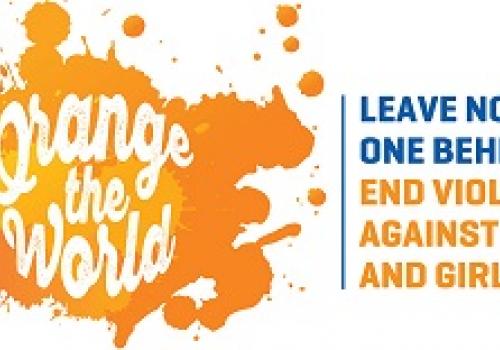25th November 2017, the Southern African Development Community (SADC) joins the rest of the world in commemorating the International Day for the Elimination of Violence against Women. This day marks the beginning of this year's 16 Days of Activism against Gender Based Violence Campaign whose theme is 'Leave No One Behind: End Violence against Women and Girls.
The 16 Days of Activism against Gender Based Violence Campaign calls for an end to violence against women and girls across the globe. Every year, the campaign runs up to 10th December, which is the Human Rights Day, underscoring the importance of addressing and dealing with gender-based violence as a gross violation of fundamental human rights.
As we commemorate this day, SADC strongly condemns gender-based violence in all its forms and remains committed to preventing and eliminating this abhorrent practice. Cognisant of the seriousness that SADC attaches to this unwelcome practice, the Secretariat is in the process of developing a gender based violence regional strategy that will guide Member States in responding to gender based violence. This will ensure that our region Leaves No One Behind in an effort to end violence, especially acts perpetrated against women and girls.
It is widely acknowledged that gender inequality and unequal power relations are some of sources of violence especially perpetrated against women and girls. The fight against gender-based violence cannot be won if we do not aggressively address gender inequalities. We, therefore, need to move an extra mile to empower women and girls to improve gender equality and equity. This is a collective effort and no one should be left behind in this effort to effectively address gender based violence, and make our region safe for all.
On this day, SADC Member States should pay particular attention to Article 20 of the SADC Protocol on Gender and Development which calls for all State Parties to enact and enforce legislation prohibiting all forms of gender-based violence; develop strategies to prevent and eliminate all harmful social and cultural practices that include child marriage, early and forced marriages, teenage pregnancies, slavery and female genital mutilation; and ensure that all perpetrators of gender based violence are effectively prosecuted.
It is sad to note that the crime of trafficking in persons against women and girls who are the majority of the victims, continues to be committed, characteristic of a modern day slavery. The prevalence of trafficking in persons necessitated the development of a global Protocol to Prevent, Punish and Suppress Trafficking in Persons, especially Women and Children in 2000. It is encouraging that already 13 of the 15 SADC Member States have made significant strides towards domesticating the global legislative framework by, first and foremost, developing their respective stand-alone legislation to curb the crime of trafficking in persons. Efforts are underway in the remaining two Member States to enact specific legislation criminalising the practice.
In view of the public security concerns posed by trafficking in persons in the SADC region, Member States adopted a 10 Year SADC Strategic Plan of Action on Combating Trafficking in Persons, especially Women and Children (2009-2019) in 2009. This was further revised in 2016, and SADC is in the process of developing a SADC Protocol on Trafficking in Persons. All these efforts demonstrate SADC resolve to end all forms of violence perpetrated against women and girls.
H.E. Dr. Stergomena Lawrence Tax
Executive Secretary of SADC

